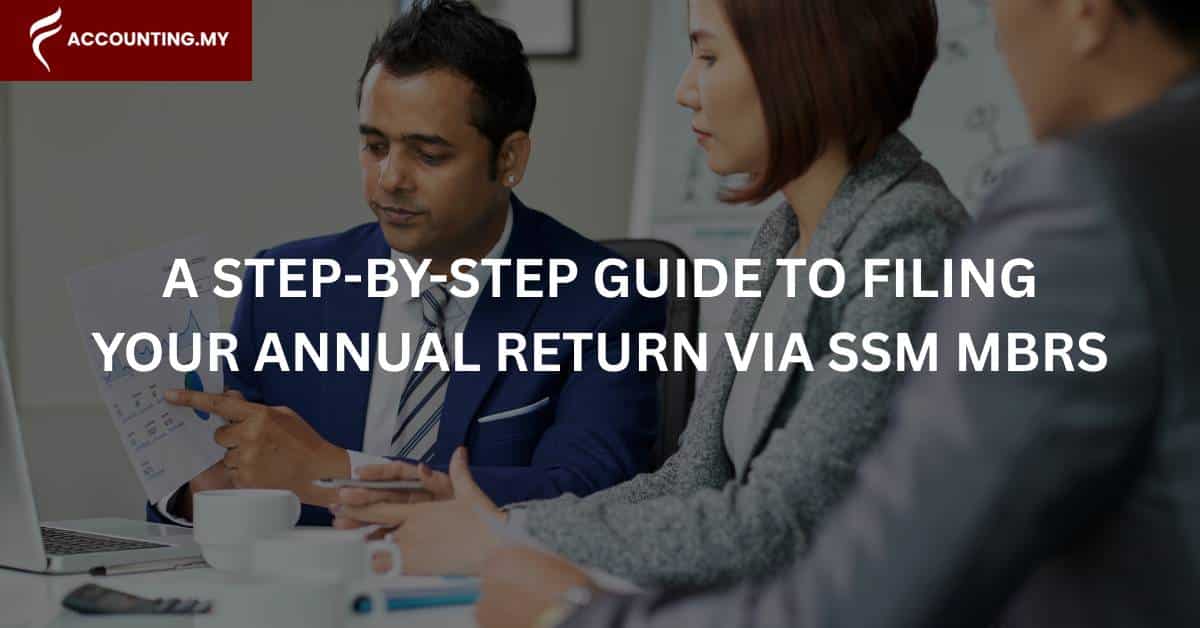Key Takeaways
- Excise duty in Malaysia applies to alcohol, tobacco, motor vehicles, sugary drinks, and other controlled goods.
- Rates are charged either as a percentage of product value or as a fixed duty per unit or litre.
- The Royal Malaysian Customs Department (JKDM) enforces excise rules under the Excise Act 1976.
- Exemptions cover low-sugar products, infant formula, raw materials, and certain duty-free zones.
- Compliance includes accurate classification, correct duty calculation, and alignment with MyInvois e-invoicing rules.
Excise duty is one of Malaysia’s most significant indirect taxes. It applies to selected goods such as alcohol, tobacco, motor vehicles, and sugary drinks, aiming both to regulate consumption and to generate government revenue.
In fact, Malaysia imposes one of the highest beer excise rates in the world, a measure designed to protect public health.
Today, the leading accounting firm in Malaysia will explain what excise duty is, when it applies, the current rates, exemptions available, and how businesses can remain compliant in 2025.
What is Excise Duty in Malaysia?
Excise duty is not your everyday sales tax, it’s a selective tax on products that can harm health, dent wallets, or compete with local industries.
In Malaysia, excise duty applies to both locally produced goods and imported goods. If you’re making beer in Penang or importing cigarettes through Port Klang, you’ll be on the excise radar.
Legal framework: Excise Act 1976, the law that sets the ground rules.
Who collects it: The Royal Malaysian Customs Department (JKDM), reporting under the Ministry of Finance.
Why it exists:
- Discouraging harmful consumption: Alcohol, tobacco, and sugary drinks
- Funding public services: Excise duty is a major contributor to healthcare, education, and infrastructure budgets.
- Protecting local industries: Higher duties on imports make Malaysian-made products more attractive and competitive.
Unlike broad-based sales tax (SST), excise duty zooms in on specific categories of goods.
When is Excise Duty Levied?
Excise duty applies at different points depending on the type of goods:
- Locally manufactured goods: charged before the goods leave the factory or bonded warehouse.
- Imported goods: charged at the port, airport, or border entry point.
- Motor vehicles: excise is assessed on the manufacturer/importer and must be paid before release from Customs or removal from a licensed premise. Registration with JPJ then follows, after duty has been settled.
This means both local producers and importers are legally responsible for excise tax.
Which Goods Are Subject to Excise Duty?
According to the Royal Malaysian Customs (JKDM), the main categories currently under excise include:
- Liquor / alcoholic beverages,
- Tobacco and tobacco products
- Motor vehicles
- Playing cards
- Mahjong tiles
Beyond that, recent amendments have expanded the scope to include sugar-sweetened beverages (SSBs) and premix preparations, effective 2024.
Category | Examples / Additional Notes |
Alcoholic Beverages | Beer, whisky, vodka, gin AND saké |
Tobacco & Related | Cigarettes, cigars, smoking pipes, chewing/sucking tobacco (new as of 2024) |
Motor Vehicles / Motorised | Cars, motorcycles, ATVs, mopeds (subject to motor vehicle excise orders) |
SSBs & Premix Preparations | Ready-to-drink soft drinks, milk drinks, juice beverages taxed at RM0.50/litre; premix mixes taxed RM0.47 per 100g as of March 2024 |
Miscellaneous | Playing cards, mahjong tiles |
Read more: JPJ Helmet Law Malaysia: Can You Wear Any Motorcycle Helmet?
Excise Duty Rates in Malaysia (2025)
Excise duty rates in Malaysia can be broadly categorised into:
- Ad valorem (percentage of value)
- Specific (fixed amount per unit or volume)
Some goods may even attract both types of duty, so careful classification is key.
Below is a detailed breakdown with examples and caveats.
Percentage-Based Duties (Ad Valorem)
These are applied as a percentage of the assessed value of the goods (often the CIF value plus import duty for imports, or factory value for local goods).
Goods | Excise Duty Rate |
| All Terrain Vehicles | 65% |
Mopeds / motorized bicycles | 20% |
| Playing Cards | 10% |
Mahjong tiles (wood, paper, plastics) | 10% |
Smoking pipes (including pipe bowls) | 10% |
Note: These rates are for items classified under specific HS codes as per the Excise Duties Order.
Fixed (Specific) Duties
These are fixed sums levied per unit, litre, volume, or strength, regardless of the product’s value.
Goods | Excise Duty Rate |
| Blackcurrant juice | RM 0.50 per litre |
Sparkling wine | RM 450 per 100% vol./litre |
| Sake | RM 60 per 100% vol./litre |
Vodka | RM 150 per 100% vol./litre |
| Cigars, cheroots, cigarillos (tobacco) | RM 400 per kg |
Mixed / Hybrid Duties & Caveats
- Some goods may be subject to both ad valorem + specific duty. In such cases, you compute both and add them.
- Correct HS code classification is critical. A misclassified product may attract the wrong duty or penalties.
- The Excise Duties Order (including those for motor vehicles, premix preparations, etc.) is regularly updated.
- For motor vehicles, excise duties often follow special formulas depending on engine capacity, type (CBU vs CKD), and additional charges.
Source: Kastam
Recent Changes
1 January 2024: Excise duty on sugar-sweetened beverages (SSBs) increased to RM 0.50 per litre.
1 March 2024: Premix drinks (2-in-1, 3-in-1, etc.) with sugar content above 33.3 g / 100 g became dutiable at RM 0.47 per 100 g.
Starting 1 November 2025 (Budget 2026): Cigarettes up 2 sen per stick, cigars, cheroots & cigarillos + RM 40 per kg, heated tobacco + RM 20 per kg, and liquor products + 10 %.
Source: Bernama, Budget 2026
Excise Duty Exemptions in Malaysia
The government provides exemptions to encourage healthier consumption, protect essential goods, and support industries.
Category | Details |
Low Sugar Content Products | Premix (sugar ≤ 33.3g/100g) & flavored milk powders (sugar ≤ 46.7g/100g) |
Infant Formula & Milk Powder | Exempt under strict food safety regulations |
Raw Materials | For licensed liquor manufacturers |
Food Preparations | Cocoa, cereal-based, soya-based products |
Public Officials’ Vehicles | 50% exemption for one vehicle/motorcycle (≥12-month overseas posting) |
Territorial Exemptions | Langkawi, Labuan, Pangkor, Tioman |
Health Standards Compliance | Sugar labelling & lab testing under Food Regulations 1985 |
These exemptions ensure essential goods remain affordable while supporting public health objectives.
Read more: How To File Income Tax Malaysia Explained
How to Calculate Excise Duty in Malaysia
Excise duty is calculated differently depending on whether the product falls under percentage-based duty or fixed duty.
1. Ad Valorem (Percentage-Based Duty)
Duty = (Value of Goods× Excise Duty Rate)
Example: Importing a moped worth RM10,000 at 20% duty → RM2,000 excise tax.
2. Specific Duty (Fixed Amount per Unit/Quantity)
Duty = (Quantity × Fixed Rate)
Example: 100 litres of vodka at RM150/litre → RM15,000 excise tax.
Businesses must ensure goods are classified correctly under HS codes to avoid underpayment or overpayment.
Penalties for Non-Excise Duty Compliance
Excise duty is tightly regulated in Malaysia. Businesses that don’t comply, whether through mistakes or deliberate evasion, face a mix of financial penalties, legal consequences, and enforcement action.
Common Compliance Failures
- Misclassification of goods (using the wrong HS code to reduce duty).
- Under-declaration of product value or quantity.
- Late or unpaid duty at the point of import, manufacture, or vehicle registration.
- Operating without a licence to manufacture or import excisable goods.
Possible Penalties
- Fines linked to duty amount: Courts may impose fines that are many times the unpaid excise duty, especially for alcohol, tobacco, or motor vehicle offences.
- Seizure of goods: Non-compliant or undeclared goods can be confiscated by Customs.
- Civil recovery: Customs may recover unpaid excise duty, penalties, and surcharges as civil debt.
- Imprisonment: In serious or repeat cases, the Excise Act allows for custodial sentences.
Practical Guidance for Businesses
- Check HS codes carefully: Small classification errors can cause large duty discrepancies.
- Pay before release: Excise duty must be settled before goods are released from Customs or vehicles registered with JPJ.
- Maintain documentation: Keep invoices, permits, and product specifications in order.
- Work with licensed agents: Freight forwarders and customs brokers can help ensure compliance.
Source: Excise Act 1976 (as amended 2018–2019); Royal Malaysian Customs Department (JKDM).
Read more: Your Comprehensive Guide To Tax Relief in Malaysia 2025
Conclusion: Excise Duty Malaysia in 2025
Excise duty continues to play a dual role in Malaysia’s economy, discouraging harmful consumption while generating vital revenue for healthcare, infrastructure, and public services.
For businesses in 2025, the priorities are clear:
- Classify products correctly under the right HS code.
- Calculate duties accurately using the proper method.
- Stay compliant with Customs requirements and e-invoicing rules under MyInvois.
At Accounting.my, we help with business license registration , manage excise duty compliance, and keep operations audit-ready.
Whether you’re importing goods, producing locally, or navigating exemptions, our team ensures you meet regulatory obligations without the stress.
Get in touch today to safeguard your business from costly penalties and focus on growth, while we handle the compliance.
Frequently Asked Questions on Excise Duty in Malaysia
A tax on specific goods like alcohol, tobacco, vehicles, and sugary drinks, regulated under the Excise Act 1976.
Either by product value (percentage rate) or by quantity (fixed duty per litre/unit).
Alcohol, tobacco, motor vehicles, sugary drinks, playing cards, and mahjong tiles.
Yes, low-sugar products, infant formula, certain raw materials, and duty-free zones.
Rates vary by vehicle type, passenger cars are taxed at registration with JPJ.
The Royal Malaysian Customs Department (JKDM).















